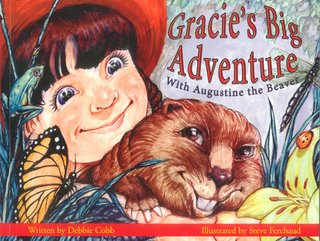By DAN BARNETT
It was an eclectic year in local publishing. This column recognized some 40 books by local authors or those with local roots, and the subject matter ranged from nefarious doings at the zoo to computer animation. You'll find reviews of these books all archived here at Musable.
Poetry, novels and children's books
The Biblio File celebrated five volumes of poetry, including "Crossings" by Audrey Small; "Try to Write a Poem Without the Word Blood In It" by Sally Allen McNall; "Skyways," edited by Patricia Wellingham-Jones; "Tom Thomson In Purgatory" by Troy Jollimore; and "Poems From My Soul" by Alma Garrett.
I reviewed five novels, including two from Redding writer Steve Brewer, "Whipsaw" and "Monkey Man" (that's the one with the zoo doings). Charlie Price and "Dead Connection" were also from Redding. Then there were "Promised Land" by Helga Ruge and "Brother Eagle, Sister Moon" by Phil Dynan out of Corning.
Incidentally, I have some big novels on my shelf still unreviewed. I'm a slow reader and thus exceedingly selective about novels (which require lots of emotional investment and just plain time). But write the history of Chico radio stations and you're in!
The third five is children's books. I love their exuberant colors and creative expression. We had "Here Is the African Jungle" from Phyl Manning; "Perry the Pack Rat Finds a Friend" by Mardell E. Alberico; Debbie Cobb's "Gracie's Big Adventure With Augustine the Beaver"; and two from T. E. Watson: "The Man Who Spoke With Cats" and "Glen Robbie."
History/memoir
The largest category this year. Two about the military: "A Patch of Ground: Khe Sanh Remembered" by Michael Archer; and "Special Agent, Vietnam: A Naval Intelligence Memoir" by Douglass H. Hubbard Jr. Then there were three in Arcadia's "Images of America" series: "Chico" (Edward V. Booth, John Nopel, Keith Johnson, Darcy Davis); "Oroville" (James Lenhoff); and "Paradise" (Robert Colby). Colby also produced "Old Days in Butte" and Teresa Ward and the Richvale Writing Group checked in with "Richvale: A Legacy of Courage, Dedication, and Perseverance."
Olivia Claire High gave us "An Angel Among Us: A Mother's Heartfelt Story"; Lucia Barbini Falcone wrote "Over Bridges, Across Tables: Growing Up On the Island of Murano"; we had "Essays From the Ten" by Daniel Thomas; "Exploring Chico's Past, And Other Essays" by Michele Shover; "Six Boys and a Bag of Dirt" by Dick Cory; "Under the Influence: Working-Class Drinking, Temper-ance, and Cultural Revo-lution in Russia, 1895-1932" by Kate Transchel; and "Bicycling Beyond City Limits: A Journal of Endurance, Friendship and Discovery" by Michael F. Foley (Chico to South Carolina in 55 days).
Miscellaneous
We were also graced with "Storytelling Through Animation" by Mike Wellins; "Body Intelligence: Lose Weight, Keep It Off, and Feel Great About Your Body Without Dieting!" by Ed Abramson; "Take Back Your Life: Recovering from Cults and Abusive Relationships" by Janja Lalich and Madeleine Tobias; "Legacy By Design: Succession Planning for Agribusiness Owners" by Kevin Spafford; "Geology of the Sierra Nevada, Revised Edition" from Mary Hill; "The Chico User's Guide" by Eric Norlie; and "Who ARE You People? A Personal Journey Into the Heart of Fanatical Passion in America" by Shari Caudron.
Photography/Art
Finally, two coffee-table delights: "Mobile Mansions: Taking 'Home Sweet Home' on the Road" by Doug Keister; and "The Murals of John Pugh: Beyond trompe l'oeil" by Kevin Bruce.
A tip of the hat to you all!
Dan Barnett teaches philosophy at Butte College. To submit review copies of published books, please send e-mail to dbarnett@maxinet.com. Copyright 2006 Chico Enterprise-Record. Used by permission.




